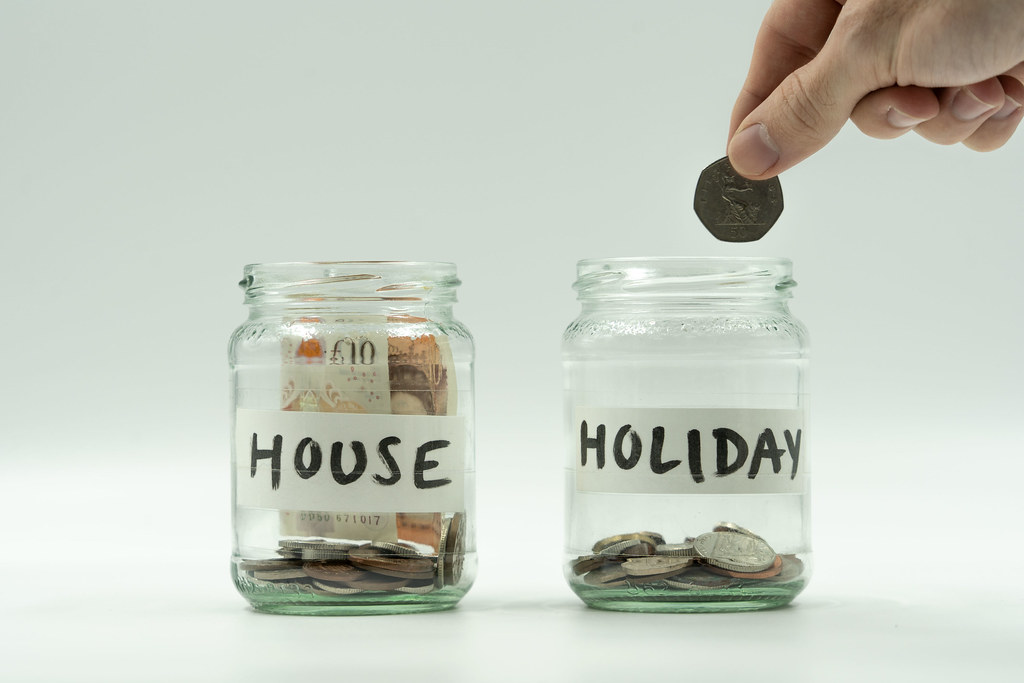Working dedicatedly and not being able to save money is disheartening. Overbearing spending eats into your hard-earned money, and in the end, you get stuck with a low savings balance. But with clever budget planning strategies, you can save money live better. These strategies will keep you from digging a hole in your pocket. Hence, you can find a better path to financial success through effective planning, from automating your finances to renegotiating your bills.
Living paycheck to paycheck
Around 80% of all Americans live paycheck to paycheck. This method can easily jeopardize your financial future, especially during emergencies. If you’re struggling to make ends meet even after having regular monthly paychecks, it is time that you make a change to your spending philosophy.
Barely saving anything from your monthly income may sound fascinating for a limited period. Even if it gives you the temporary satisfaction of buying stuff you love. But, it’ll not quench your thirst for significant achievements.
Benefits from Savings
Savings can reap a lot of great benefits.
- You get to have financial security. In a financial setback, savings will always have your back.
- You can decide to invest your savings to multiply your earning sources.
- Savings can make you secure and confident as you don’t need to run for each penny after gulping your income for unnecessary expenses.
- Savings lets you look at the bigger picture. Instead of spending money on trivial objects, you can invest your savings for the greater good, say in a business or property.
- You don’t get bothered by debts and their painful interest if you have savings.
- It aids in the financing of more significant expenses such as mortgage payments, education, weddings, and international travel.
Tips on how to save money and live better
You can follow the most effective tips below to save money live better. Only you can change your financial habits. With proper planning and unwavering discipline, you can block that money drainage pipe and construct yourself a better living standard.
Savings come first, then spending.
This is the most basic tactic for saving some bucks in your account. Wherever you get your monthly pay, fragment it into a minimum of three parts (50/30/20). One part directly goes to the piggy bank of your account. You don’t have to own a piggy bank and put your money in it. But, think of a certain number of your salary as a forbidden ground.
For a better approach, transfer your savings to another account only for saving money. This way, you’ll not be tempted to scratch that little sum on your expenses. For the rest of the salary, use the 30% portion on regular and much-needed expenses and 20% on leisure or light spending. You can always change the fractions according to your monthly income.
Use a 24-hour rule.
Getting dragged by your desires can make saving your money a challenge. You think about splurging on your favorite dress, game, or gadget. But, this is not you talking. It is the trap of your desires in your mind. The more you think about it, the more your brain craves it. But, it can be sorted out by using the 24-hour rule.
For example, if you’ve set a limit of spending no more than $40, the item that costs more than $40 comes under the 24-hour rule. You simply have to wait till the next full day before jumping into the decision. Maybe, after a thoughtful session of need and wish, you can come to your senses and prevent yourself from later regrets. The 24-hour rule makes you weigh the difference between need and desire, and in this way, it opens your eyes. And you can make the desire go away without harming your wallet.
Unsubscribe from marketing emails.
Ever get dragged down by those enticing marketing emails? These emails use the most vital marketing strategies and FOMO best (fear of missing out). You may get distracted by the discounts and deals from your favorite brands. But they don’t understand your misery to save money. These FOMO deals result in impulse buys, slipping from your budget again.
It is an excellent time to remove a list of marketing emails from brands and unsubscribe from them. You’ll be surprised how this practice can patch up your relationship with money.
Reduce unnecessary expenditure.
If you’ve a habit of ordering your morning coffee from the nearby coffee joints, try to stop that. You can save up to $100 by switching to homemade coffee. These unnecessary expenses make your wallet bleed slowly. Therefore, beware of these purchases.
For example, try cooking your meals instead of ordering food from outside. Or, when shopping at the supermarket, don’t get tempted to buy the stuff you don’t need. These little steps can make a big difference in your savings plan.
Try to shop with coupons.
We all love coupons, and why not? They are great money-saving treats. You can get as much as a 40% discount through coupons or more. So, why not use them? You don’t need to shy away from your coupon credits. Flash them proudly and make the most of their use.
Switch to public transportation.
Commuting to your office daily by car can make your money vanish quickly. With the hike in gas prices and car services, you end up spending beyond your monthly target. So, instead, travel by public transport. Get a regular travel pass that costs just a few bucks and save up to $150-$200 from traveling in your car. If you’re on a shoestring budget, switching to public transport is the best way to save some extra bucks.
You can also try carpooling if public transport becomes inconvenient. Pair up with your colleague at the office and divide the gas and service expenses.
Avoid spending money on shopping.
Shopping is one of the most famous culprits regarding money drainage. Every time a summer or winter sale comes, you go crazy filling up all the shopping carts without even realizing if you need the stuff or not. You should have self-control and make decisions like a crackerjack financial advisor. Avoid all the trending merchandise that brand stores flash up on their walls. There is nothing more painful than spending money on clothes, shoes, or accessories that you’ll barely wear twice.
So, don’t go splurging on items you don’t need. Embrace the culture of wearing clothes, shoes, or accessories more than once. Even for ticket items like buying an iPhone or a laptop, ask yourself if you need one. If you have a phone in excellent condition, there is no need to buy another one. Therefore, control your shopping spree and stop making other companies rich through your hard-earned money.
Get on board with the envelope budget system.
An envelope budget system is one of the most effective ways to save money and live a better life. It also makes you aware of your monthly expenses in various categories and provides insight into unnecessary expenses. For this budgeting system to work, you must put your money into envelopes for different categories. You can also use the help of digital envelopes. These digital envelopes make it easy to use the envelope budgeting method. Follow these simple steps for the envelope budgeting system.
- Be aware of your current expenses: Sit down and get a sense of the incoming and outgoing money. Make a list of all your spending habits. Next, estimate your current fixed expenses such as Mortgage, utilities, insurance, and so on).
- Set limits to categories: After making a list of all the expenses, categorize them and set a limit on cash flow for each. For example, $1,100 for a mortgage, $300 for car payments, $150 for groceries, $100 for dining out, and so on.
- Now figure out the cash withdrawal: Online payment for mortgages, car insurance, and electricity bills is more convenient. But, other than that, figure out the categories for which you can pay in cash, such as groceries, entertainment, and so on. After figuring out the amount of cash to withdraw, fill the envelopes with the categories.
- Take at least 5–10 envelopes and mark them with categories such as gas, groceries, self-care, shopping, entertainment, etc. Fill these envelopes with cash and make money last for the whole month. If any of your envelopes become empty before the end of the month, resist the temptation to spend more and live without that category for the remainder of the month.
Through envelope budget management, you’ll get to know the exact budget for each category, and it’ll make you cut off the other unnecessary money-draining spending.
Setup an automatic system to save money.
Automatic saving systems are a powerful way to be consistent in saving. If you get distracted by other expenses and get weak in the journey of saving, automatic savings can help you. For example, you have that planned trip with your friends and try to expand your budget by not putting cash in your savings account. Such a habit can make you weak and create a loophole for overspending. Setting up an automatic account ensures that a specific amount you’ve selected gets transferred into your savings account at the selected times—biweekly or monthly.
Through the automatic saving system, you’ll not find any excuse for overspending and will be strong in the money-saving game.
Make a savings plan.
A savings plan is essential. And it sounds easier than it is. But, you need to sit down and take your time to create a savings plan for yourself. Use a spreadsheet or digital software; they make it easy to go through the calculations and produce fast results. Make a realistic budget plan for you, and make it speak to your expenses. And in the end, stick to it.
Final Word: Save money and live better
Money-saving may sound complex, but it is primarily the work of psychology. You can control the steering of your financial vehicle. All you need to do is follow the discussed tips. You’ll be surprised at how much of a difference they can make in helping you save money and live better.
Frequently asked questions
How can I save money while paying debts?
To save money while paying off debts, you must pay off your debts as soon as possible. First, try to clear debt with high interest. For example, deposit less money for low-interest debts and then pay the remainder for higher-interest debts. This way, you’ll get rid of the debt that consumes more of your money.
How to stop overspending?
- Identify your overspending habits.
- Unsubscribe from marketing emails.
- Pack your lunch.
- Beware of FOMO.
- Don’t impress others.
- Buy local products with high quality than branded items.





